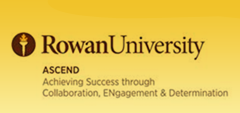Institutional Barriers and Self-Efficacy Strategies Among First-Generation Community College Transfer Students: A Qualitative Study
Loading...
Start Date
15-2-2023 9:15 AM
End Date
15-2-2023 10:15 AM
Document Type
Presentation
Description
In the past twenty years, first-generation college students and transfer students have both become increasingly large groups whose needs are complex and dynamic, yet who are, overall, less likely to graduate on time or at all compared to their traditional, non-first-generation peers. This qualitative study of several seniors in the RCBC 3+1 program, a partnership between Rowan and Rowan College of Burlington County, reveals the structures that can be put in place to better support first-generation transfer students. Using a theoretical framework of Cultural Capital Theory (Bourdieu, 1986), Ecological Systems Theory (Bronfenbrenner, 1977), and Social Cognitive Career Theory (Lent, et al, 1994), I hypothesize that unclear institutional policies, programmatic gaps, and limited feedback from first generation transfer students in the development of the RCBC 3+1 program have exacerbated the challenges that first-generation transfer students experience. However, this has been offset by the work of advisors within the program, who have encouraged self-efficacy and the building of cultural capital through empowering students to ask the right questions and to explore their opportunities.
Copy of slides
Institutional Barriers and Self-Efficacy Strategies Among First-Generation Community College Transfer Students: A Qualitative Study
In the past twenty years, first-generation college students and transfer students have both become increasingly large groups whose needs are complex and dynamic, yet who are, overall, less likely to graduate on time or at all compared to their traditional, non-first-generation peers. This qualitative study of several seniors in the RCBC 3+1 program, a partnership between Rowan and Rowan College of Burlington County, reveals the structures that can be put in place to better support first-generation transfer students. Using a theoretical framework of Cultural Capital Theory (Bourdieu, 1986), Ecological Systems Theory (Bronfenbrenner, 1977), and Social Cognitive Career Theory (Lent, et al, 1994), I hypothesize that unclear institutional policies, programmatic gaps, and limited feedback from first generation transfer students in the development of the RCBC 3+1 program have exacerbated the challenges that first-generation transfer students experience. However, this has been offset by the work of advisors within the program, who have encouraged self-efficacy and the building of cultural capital through empowering students to ask the right questions and to explore their opportunities.


